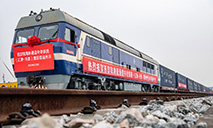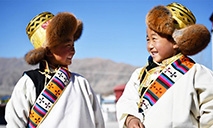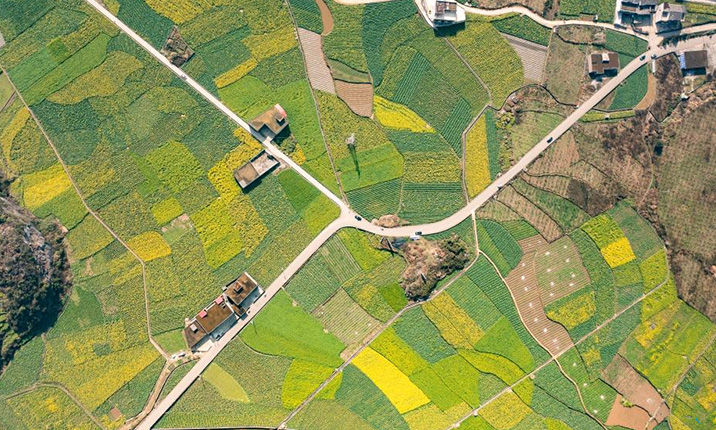China welcomes UN human rights chief's visit to Xinjiang but rejects political tactics: FM
China welcomes UN human rights chief Michelle Bachelet's visit to China and her planned trip to the country's northwestern Xinjiang region, a Chinese Foreign Ministry spokesperson said on Wednesday, reiterating China's consistent stance on opposing certain countries' use of this event for political manipulation.
Experts called on the UN High Commissioner for Human Rights not to be influenced by disinformation from the West and to look objectively at Xinjiang's progress.
China and the UN High Commissioner for Human Rights are working on detailed arrangements for her visit to China, and the country is willing to offer convenience for her visit, Zhao Lijian, spokesperson of the Foreign Ministry, said at a routine press conference on Wednesday, while stressing that China's stance on related topics is consistent and clear.
Zhao said the purpose of the visit is to promote exchanges and cooperation between the two sides.
The news of Bachelet's visit to China has attracted wide attention, as anti-China forces in the US and some Western countries ramped up efforts to hype groundless "genocide" accusations about China's Xinjiang region, which have been refuted multiple times by China. Discussions over Bachelet's visit to Xinjiang region began last year.
The UN High Commissioner for Human Rights announced the visit in a video message released to the UN Human Rights Council on Tuesday, Reuters reported, noting that Bachelet's advance team would leave in April for China to prepare for her visit.
On the same day, China's permanent representative to the UN Office at Geneva, Ambassador Chen Xu, reiterated China's welcome for Bachelet's visit at the ongoing 49th session of the Human Rights Council, and noted in a speech that "We expect the High Commissioner and her Office to respect the sovereignty of all countries as well as the human rights and development paths independently chosen by countries in light of their national conditions, promote dialogue and cooperation, and make joint efforts to make global human rights governance fairer, just, reasonable and inclusive."
The visit of the UN High Commissioner for Human Rights should be on the premise that it is not an investigation with a pre-set guilty conclusion as some Western media have hyped, Wang Jiang, an expert at the Institute of China's Borderland Studies at Zhejiang Normal University, told the Global Times.
Some Western countries have criticized and smeared China's policies in countering terrorism, extremism and separatism in its Xinjiang region, and they have released disinformation about the human rights situation in the region, Wang said.
China's attitude in welcoming Bachelet also underscores its role as an active contributor to the UN human rights platform, and the visit to Xinjiang should be a way for her to learn the truth of the region amid the disinformation of the West, Wang said.
Some anti-China forces in the US and Western countries have increasingly pressured the UN Human Rights Council and the High Commissioner to accuse China of "genocide" in Xinjiang region.
After news of Bachelet's visit to China emerged, some forces urged the UN Human Rights Council to release an alleged report on the so-called abuse of Uygurs in Xinjiang, and some even claimed Bachelet's visit will be limited to what China wants her to see.
"It is not surprising to see such remarks from anti-China forces and the Western media. You can never wake up a man who is determined to play possum. Even though journalists from some Western media outlets have visited Xinjiang, their reports were biased and full of lies," Wang Yuting, associate professor of the Institute of Chinese Borderland Studies at the Chinese Academy of Social Sciences, told the Global Times.
Wang Yuting noted that as China has done nothing that needed to be hidden in Xinjiang, its welcome for the UN High Commissioner for Human Rights is open and sincere, with the purpose of showing that the situation in the region is opposite to the disinformation and smearing in Western media.
"Xinjiang is open for anyone to visit, since it has received so many diplomats, scholars and foreign reporters. But not everyone wants to tell the truth without bias, or even has the courage to come here," Wang Yuting said.
The Global Times learned that China first invited Bachelet for a visit in 2020, but there were no results for unknown reasons. Previously, China also invited EU diplomats in China to visit the Xinjiang region, but was declined, and some diplomats later put forward requests to visit criminals serving prison terms who were punished by law for splitting China.
Wang Yuting noted that the UN High Commissioner for Human Rights should not be influenced by disinformation spread by anti-China forces in the West when she arrives in China.
Photos
Related Stories
- Human rights achievements here never more evident: national lawmaker
- U.S. human rights situation in 2021: Politicians play games in sham democracy, trample on people’s political rights
- Wondrous Xinjiang: Chinese opportunity through eyes of Belgian entrepreneur
- U.S. human rights situation in 2021: Abuse of force, sanctions violate human rights in other countries
- China improves human rights of people with disabilities through sports
Copyright © 2022 People's Daily Online. All Rights Reserved.










